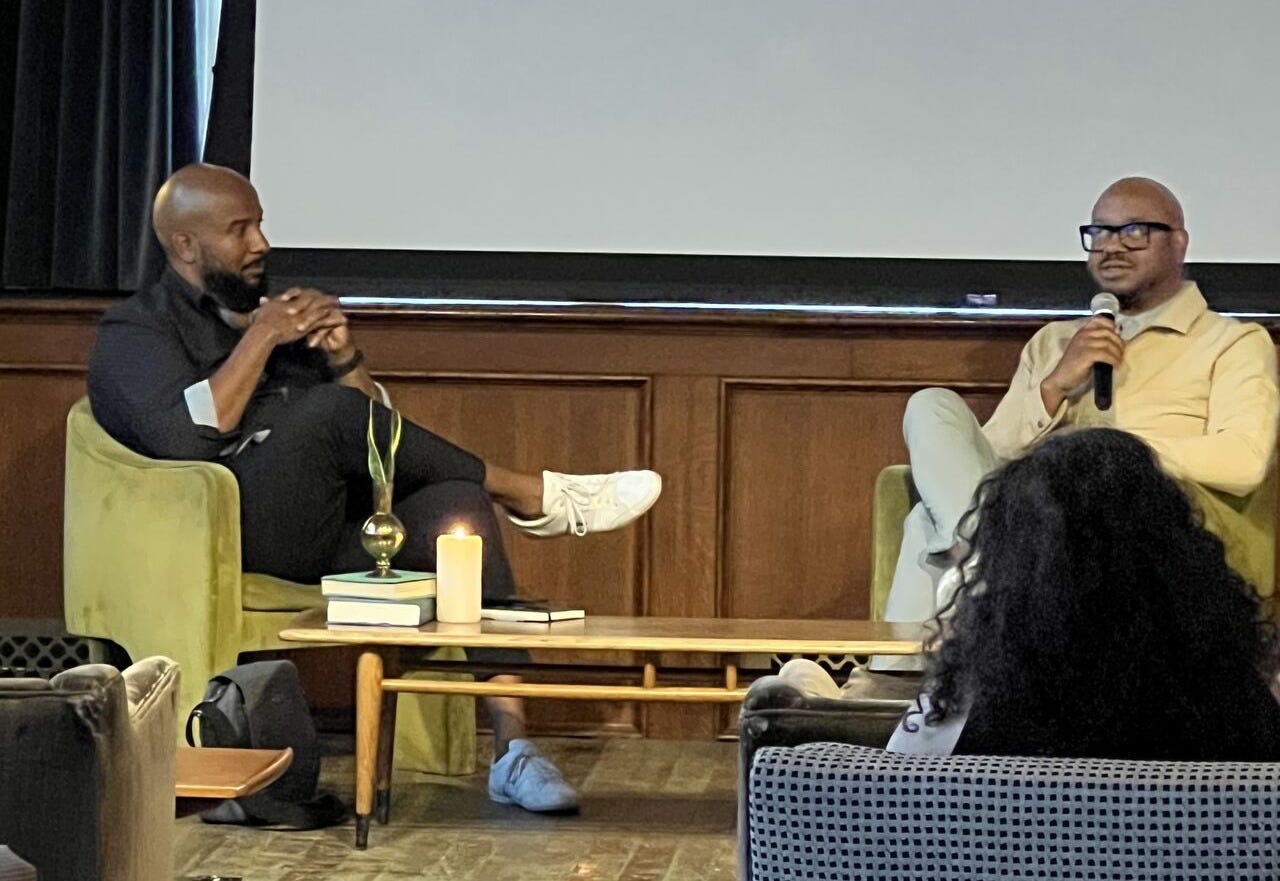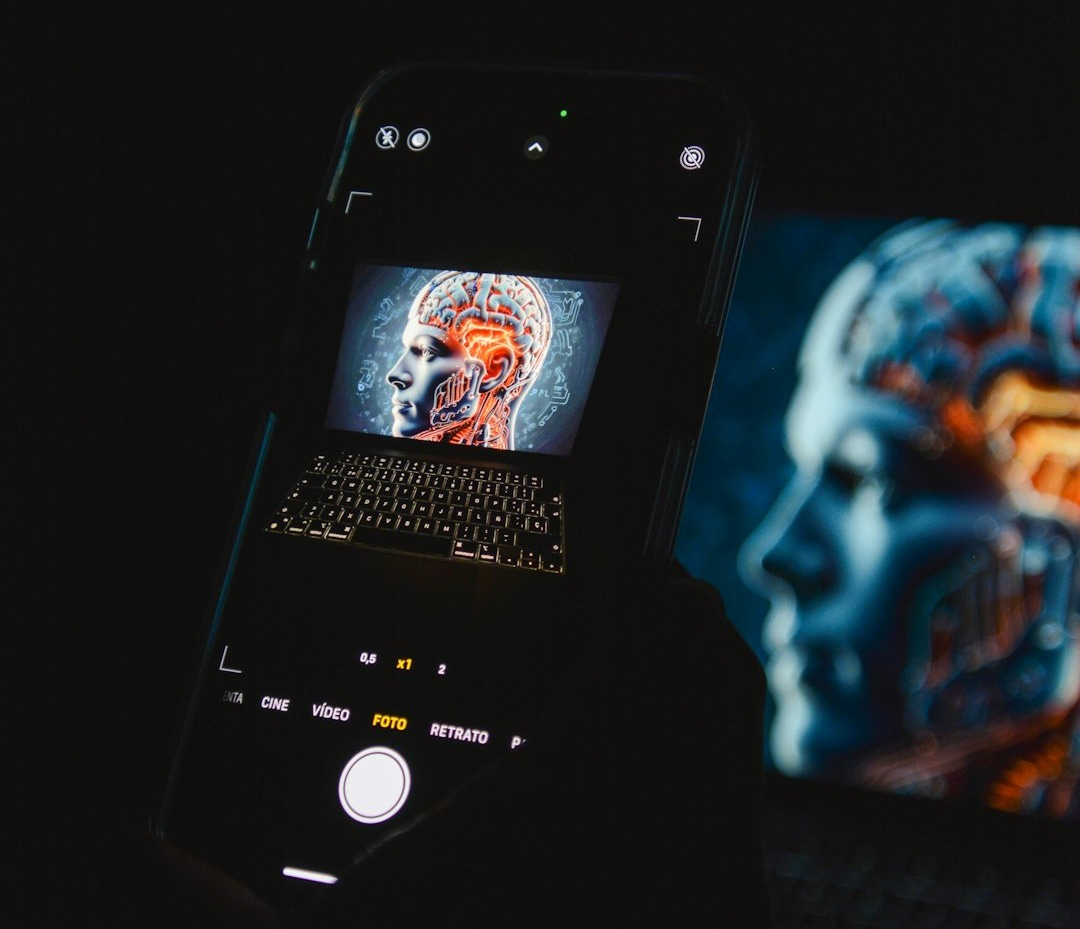Using AI Ethically, Wisely, & More from Experts in Tech
A talk on the concerns and solutions about the uses of AI
Last week, I went to a discussion as part of Tech Club at Chicago’s Soho House. It was the beginning of Tech Week, and the speakers were Jason Rebello, cofounder of Rebel Ventures, and Kameron Jackson, founder of Evoker, Inc.

Rebel Ventures helps organizations streamline operations, enhance decision-making, and scale more efficiently by leveraging AI ethically. Evoker is a, “trust accelerator, powering smarter human connections through emotional intelligence.” As Kameron explained in his opening remarks, “The future is on emotional intelligence, not artificial.”
Their companies reflect their beliefs, and frankly, I found an optimistic yet cautious outlook on AI advancements.
Jason began their discussion, noting that you hear more and more about how efficient and cost-effective AI has been for companies, but you are not hearing about the humanity that it can help. This is a concern and one that they want to tackle in tonight’s discussion.

Kameron understood what he meant. As both shared they had been undiagnosed for most of their childhoods as neo-divergent, Kameron did learn how to connect and empathize with others. This was partially a survival skill but also a way he forced himself to grow. It led to a successful career and saw the potential and importance of everyone.
He shared some data that a person judges a new person within 1/10th of a second. That is not fair nor is it barely any time. Later, when I was able to speak with him more one-on-one, we did refer to a Maya Angelou quote,
“I've learned that people will forget what you said, people will forget what you did, but people will never forget how you made them feel.”
He utilizes technology and AI to help companies and individuals ensure their message comes across authentically.
The discussion moved on that, partially, the problem with the growing use of AI is that people themselves are not self-aware. Again, Kameron references a study does by the Harvard Business Review where a five-year research program discovered while 95% of people believed they were self-aware, in actuality, only 10-15% were.
This proves a few things. One is that people are innately emotional and base their decisions that way, not analytically. The other is that most people in power, founders, tech company heads, and consumers, are not self-aware.
And while self-awareness is one thing, emotional intelligence is closely tied which is also lacking. But not with AI. They both agree that it is concerning how much AI continues to score higher in emotional intelligence than humans do. While we have never been more connected, with the use of the internet, smart devices, etc, we are also finding increasing numbers of loneliness, partially because we can be easily manipulated with the help of AI.
Kameron pointed out there are studies, such as the Nordstrom Way, where businesses that specialize in empathy, not in selling or transactions, actually were more successful, but unfortunately, not many companies adopt this method.
He recently came back from the AI For Good Summit, held in Geneva, Switzerland, annually and can be attended for free (I just registered for next year). The summit is “identifying innovative AI applications, building skills and standards, and advancing partnerships to solve global challenges.” Kameron witnessed tech companies alone with artistic companies to start ups to corporations to governments all over the world came together. The theme in 2025 was how to be humane, BUT he felt it lacked a real solution or ultimately, how to accomplish that goal.

So what are some solutions? Thankfully, the discussion and Q&A portion offered some. We need to have more gender equality in tech. Studies have shown that women tend to have higher cognitive empathy than men so we need to harness that as we keep using and crafting technology and AI.
We also need to make founders, companies, and consumers more transparent about their use of AI. Waiting for regulations will take too long and will be far too late. It is up to us to make sure we are held accountable to be ethical and set a standard. How much are we using AI, for what purposes, etc? Transparency and accountability are paramount.
To build on people’s humanity, empathy, and emotional intelligence, Jason shared about a few sources like Human Library, which was, “designed to build a positive framework for conversations that can challenge stereotypes and prejudices through dialogue.” He also recommended The AI Daily Brief Podcast as a resource to stay up to date.
And finally, we need to remember that AI is a tool to improve the quality of life. It is NOT replacement and people are the reason it is growing smarter and better. What and how we use it for is building AI.
There is one thing that AI can never achieve: Authenticity.
That is innately human. So remember that AI is the assistant, it is not the replacement. The talk was very insightful, cautionary, and ultimately hopeful for how we continue to use AI.
If you know of any resources to share to stay informed about the best uses and vigilant on technology and AI, please comment below!




